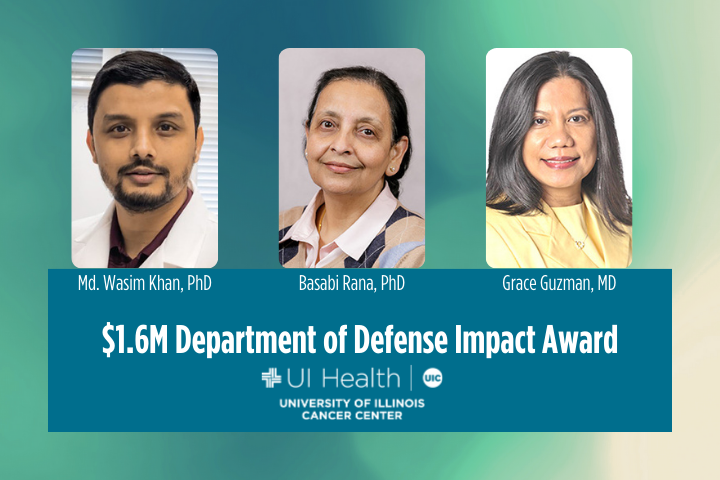
University of Illinois Cancer Center member Md. Wasim Khan, PhD, is the Principal Investigator on a newly funded $1.6 million U.S. Department of Defense (DoD) Impact Award with fellow Cancer Center members Basabi Rana, PhD, and Grace Guzman, PhD as co-investigators.
The three-year grant – focused on liver disease and liver cancer – aims to study a potential new way to treat cancer by finding a way to target cancer cells differently than current treatments.
The research team, all members of the Cancer Center’s Cancer Biology Research Program, previously identified a new kind of protein, a hexokinase called HKDC1, and they have evidence it is involved in the progression of both liver disease and liver cancer.
A common liver disease is metabolic dysfunction-associated steatotic liver disease (MASLD), which used to be called non-alcoholic fatty liver disease. Being overweight or obese increases the risk of developing liver disease or liver cancer, such as hepatocellular carcinoma (HCC).
“We think HKDC1 may be the reason why one disease can lead to the other,” according to their grant abstract.
MASLD is increasingly common in the U.S. military and veterans, and it is considered a top risk factor for HCC, other research suggests.
DoD Award
Khan, Rana and Guzman propose that successful completion of their project will result in HKDC1 becoming an actionable target to treat cancer and also be used in both surveillance and screening to assess HCC risk.
